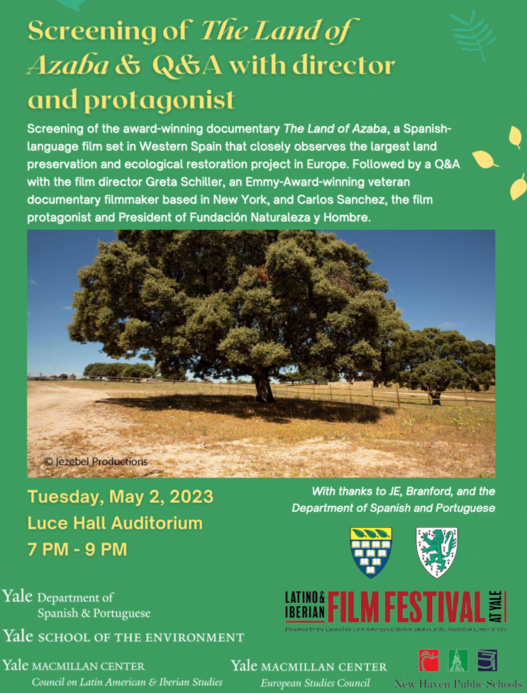Playing With Fire: Incandescent Pedagogies and Critical Politics (Mexico City, 2016-22)
This conference focuses on the ways in which the protest- in particular young feminist and student protest in México City- can be visualized, translated, most of all read and theorized as crucially pedagogical and critically political. Much of what is expressed, drawn, painted during the protest (graffiti, murals, pintas) fades or vanishes below the surface. My aim is to stay with what vanishes and fades, with what is incommensurable or difficult to be narrated or placed together, and may be constitutive of a political discourse or a pedagogical intervention.

 Screening of the award-winning documentary The Land of Azaba, a Spanish-language film set in Western Spain that closely observes the largest land preservation and ecological restoration project in Europe. Followed by a Q&A with the film director Greta Schiller, an Emmy-Award-winning veteran documentary filmmaker based in New York, and Carlos Sanchez, the film protagonist and President of Fundación Naturaleza y Hombre.
Screening of the award-winning documentary The Land of Azaba, a Spanish-language film set in Western Spain that closely observes the largest land preservation and ecological restoration project in Europe. Followed by a Q&A with the film director Greta Schiller, an Emmy-Award-winning veteran documentary filmmaker based in New York, and Carlos Sanchez, the film protagonist and President of Fundación Naturaleza y Hombre.